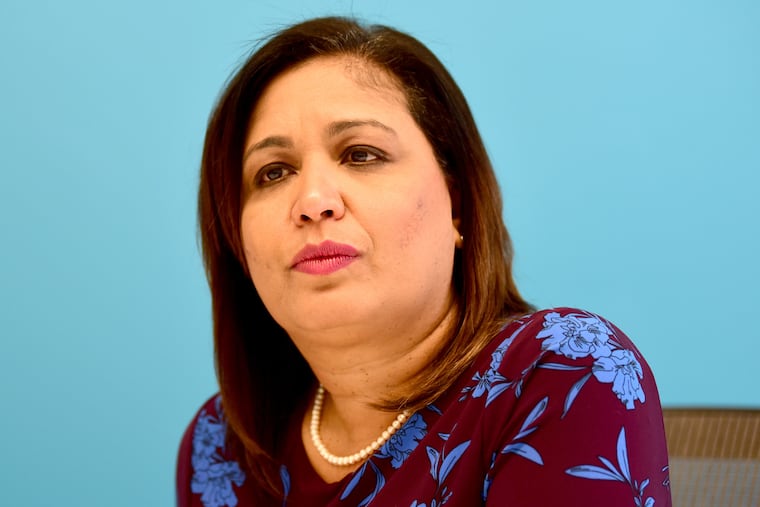Mayor Kenney’s ‘safe’ budget is not good enough | Opinion
With unprecedented federal investment on the way, Philadelphia cannot miss this opportunity for bold action.

Earlier this month, City Council began hearings on Mayor Jim Kenney’s proposed city budget. The economic crisis spawned by the virus has left less revenue for the government at all levels. However, thanks to President Joe Biden’s stimulus package, Philadelphia will avoid bruising layoffs and steep budget cuts that otherwise would have been necessary to deal with the shortfall in revenue. Still, we should not breathe easy. This budget should be used as an opportunity to learn from the lessons of the COVID-19 crisis.
We need to double down on the investments to help the entire city recover. We also need to embrace the efficiencies created in response to COVID-19. Finally, we must be frank about what is not working and change course to avoid going back to an unfair “normal.” The upcoming budget process is a time to have all those conversations. Here are my priorities for the next city budget.
Reducing poverty
Prior to the pandemic, I cochaired the Special Committee on Poverty Reduction and Prevention. We launched a public-private partnership to dramatically reduce poverty in Philadelphia. The COVID-19 economic collapse revealed just how desperate the situation is for many city residents, especially those already living in poverty or just on the edge of it. We must double down on our anti-poverty efforts. We must stay focused on direct assistance to people who have yet to obtain access to a myriad of federal, state, and local relief programs. Additionally, we need to promote policies that create and expand rental vouchers, basic income, and job training stipends. The COVID-19 stimulus bills reduced poverty by giving people direct payments, especially children and families in the American Rescue Plan. Our anti-poverty investments must continue to focus on people, not programs.
Public safety
The COVID-19 crisis has highlighted long-term public safety challenges, including an alarming increase in gun violence. Hopelessness is a major contributor to violence. The first step toward hope is making sure our residents and neighborhoods do not feel abandoned. City departments must be held accountable for doing their jobs at a basic level. We must reduce blight, pick up trash, invest in small businesses, and provide clean public spaces for all our residents. All these things are the responsibility of the local government, and there must be accountability when government fails.
» READ MORE: Kenney’s budget would use stimulus money to cut taxes and return Philly to pre-pandemic spending
Neighborhood investment
Businesses were devastated by the shutdown. That is why I fought for a $400 million investment aimed at Black-owned businesses and other communities hit hardest by COVID-19. We need new investments, not just downtown but in neighborhood-based housing, infrastructure, local commercial corridors, and job training.
Access to government
Another lesson from COVID-19 was the need for the government to effectively communicate with the public. This is doubly true for immigrant and non-English-speaking residents, who prior to COVID-19 had limited access to technology and now will need more than ever. Unfortunately, that did not always happen during the pandemic. Each city department must provide an update on what they are doing to achieve access to services, including language access.
COVID-19 efficiencies
The economic downturn caused by the COVID-19 pandemic required painful cuts during last year’s budget process. I am eager to restore many of these funding cuts. However, the pandemic-era budgets also contained significant savings and department efficiencies that should be identified and preserved as we realign funding priorities for a more equitable new normal. This second COVID-19 budget offers the opportunity to identify efficiencies and waste revealed by the pandemic, so we can make investments in people and neighborhoods.
Equity and accountability
Mayor Kenney has repeatedly said that his budget decisions are driven by equity. This is a wonderful statement of principles. However, the rhetoric does not always match the reality. For example, the city’s Health Department is moving ahead with building a health center in my district but has selected a location that is opposed by most neighborhood organizations in the area. Residents want a more transit-oriented site with greater accessibility to the public. Their concerns have thus far fallen on deaf ears. I plan to ask the administration about this project as well as other policies where “equity” is the stated goal but not the likely outcome.
» READ MORE: Who decides Philly’s budget? Here’s how the process works.
Let’s not mince words: The COVID-19 pandemic devastated Philadelphia. We lost thousands of our residents to the virus, and the economic shutdown caused a lot of additional pain for many others. We may not truly recover for years to come. That is why we cannot waste this opportunity. We should not ignore the lessons that we learned during this pandemic.
I will keep working as City Council Appropriations Committee chair to make sure that our pandemic response is equitable, responsible, and reflective of community needs, and with unprecedented federal investment on the way, we cannot miss this opportunity for bold action. A “safe” budget is not good enough.
Maria Quiñones-Sánchez represents the 7th District in Philadelphia City Council and chair of the Appropriations Committee.